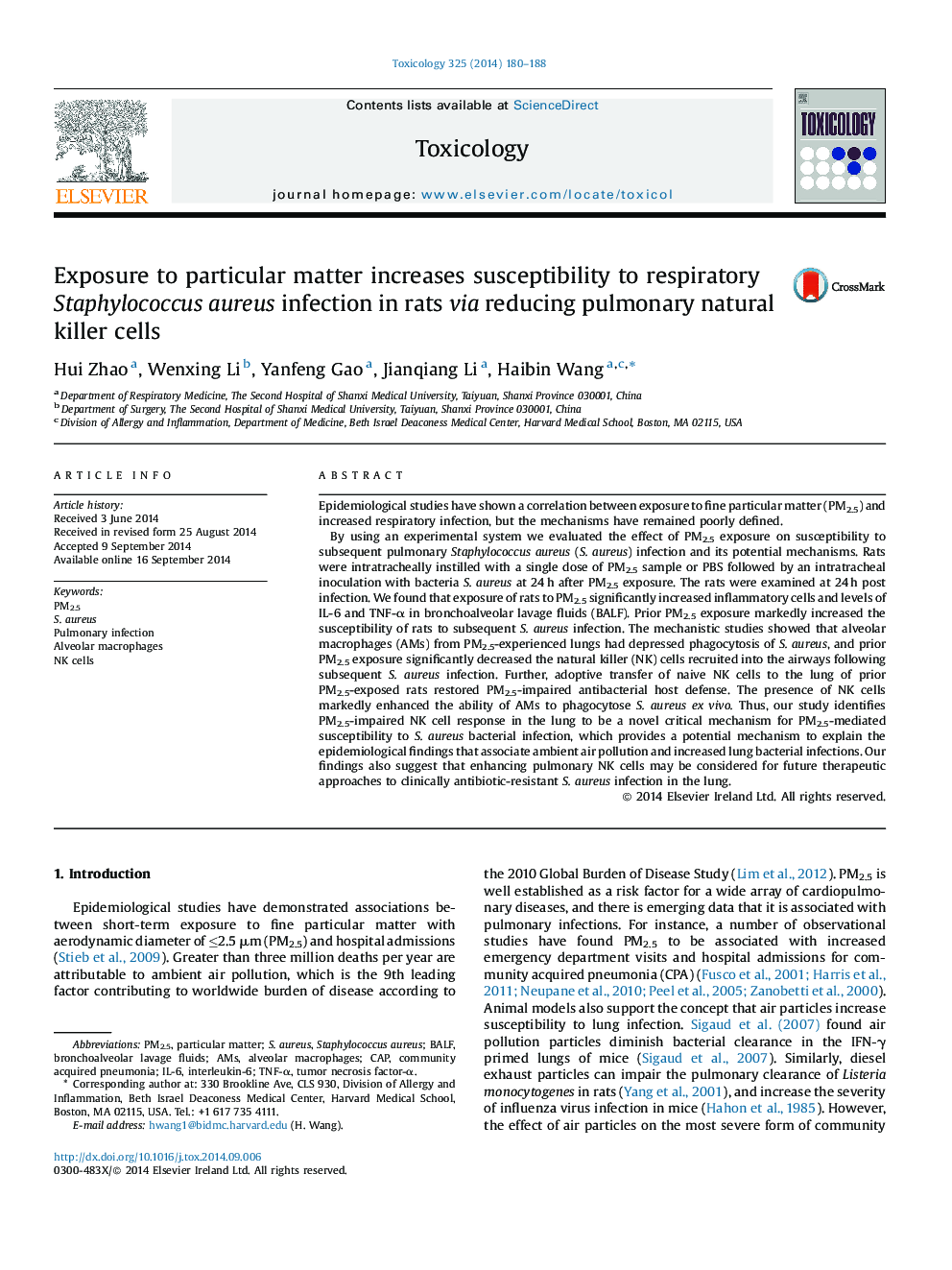| کد مقاله | کد نشریه | سال انتشار | مقاله انگلیسی | نسخه تمام متن |
|---|---|---|---|---|
| 5859159 | 1562331 | 2014 | 9 صفحه PDF | دانلود رایگان |
Epidemiological studies have shown a correlation between exposure to fine particular matter (PM2.5) and increased respiratory infection, but the mechanisms have remained poorly defined.By using an experimental system we evaluated the effect of PM2.5 exposure on susceptibility to subsequent pulmonary Staphylococcus aureus (S. aureus) infection and its potential mechanisms. Rats were intratracheally instilled with a single dose of PM2.5 sample or PBS followed by an intratracheal inoculation with bacteria S. aureus at 24 h after PM2.5 exposure. The rats were examined at 24 h post infection. We found that exposure of rats to PM2.5 significantly increased inflammatory cells and levels of IL-6 and TNF-α in bronchoalveolar lavage fluids (BALF). Prior PM2.5 exposure markedly increased the susceptibility of rats to subsequent S. aureus infection. The mechanistic studies showed that alveolar macrophages (AMs) from PM2.5-experienced lungs had depressed phagocytosis of S. aureus, and prior PM2.5 exposure significantly decreased the natural killer (NK) cells recruited into the airways following subsequent S. aureus infection. Further, adoptive transfer of naive NK cells to the lung of prior PM2.5-exposed rats restored PM2.5-impaired antibacterial host defense. The presence of NK cells markedly enhanced the ability of AMs to phagocytose S. aureus ex vivo. Thus, our study identifies PM2.5-impaired NK cell response in the lung to be a novel critical mechanism for PM2.5-mediated susceptibility to S. aureus bacterial infection, which provides a potential mechanism to explain the epidemiological findings that associate ambient air pollution and increased lung bacterial infections. Our findings also suggest that enhancing pulmonary NK cells may be considered for future therapeutic approaches to clinically antibiotic-resistant S. aureus infection in the lung.
Journal: Toxicology - Volume 325, 5 November 2014, Pages 180-188
